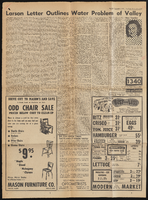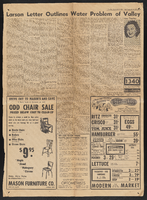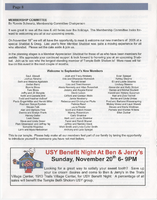Search the Special Collections and Archives Portal
Search Results
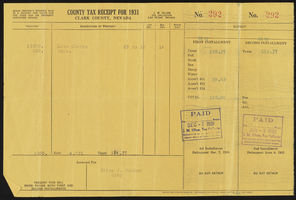
Stewart family real estate tax records
Date
1931 to 1954
Archival Collection
Description
Stewart family real estate tax records
Text

Della Coates interview, March 18, 1978: transcript
Date
1978-03-18
Archival Collection
Description
On March 18, 1978, collector Bill Hitchcock interviewed Della Coates (b. June 17th, 1919 in Birmingham, Alabama) at her home in Las Vegas, Nevada. In the interview, Della Coates discusses her time working for the telephone company. She also speaks about the changes in education and about changes throughout Las Vegas.
Text
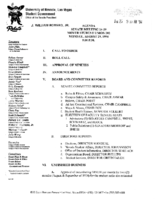
Meeting minutes for Consolidated Student Senate University of Nevada, Las Vegas, August 29, 1994
Date
1994-08-29
Archival Collection
Description
Includes meeting agenda and minutes. CSUN Session 24 Meeting Minutes and Agendas.
Text
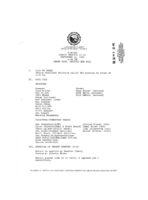
Meeting minutes for Consolidated Student Senate University of Nevada, Las Vegas, September 14, 1989
Date
1989-09-14
Archival Collection
Description
Includes meeting agenda and minutes. CSUN Session 19 Meeting Minutes and Agendas.
Text
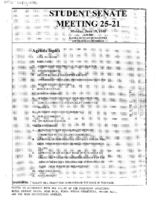
Meeting minutes for Consolidated Student Senate University of Nevada, Las Vegas, June 19, 1995
Date
1995-06-19
Archival Collection
Description
Includes meeting agenda, minutes, and a lightening survey. CSUN Session 25 Meeting Minutes and Agendas.
Text
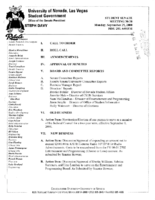
Meeting minutes for Consolidated Student Senate, University of Nevada, Las Vegas, September 25, 2000
Date
2000-09-25
Archival Collection
Description
Includes meeting minutes and agenda. CSUN Session 30 (Part 2) Meeting Minutes and Agendas.
Text
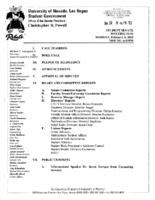
Meeting minutes for Consolidated Student Senate, University of Nevada, Las Vegas, February 03, 2003
Date
2003-02-03
Archival Collection
Description
Includes meeting minutes and agenda, along with additional information about letters. CSUN Session 33 (Part 1) Meeting Minutes and Agendas.
Text
Pagination
Refine my results
Content Type
Creator or Contributor
Subject
Archival Collection
Digital Project
Resource Type
Year
Material Type
Place
Language
Records Classification

